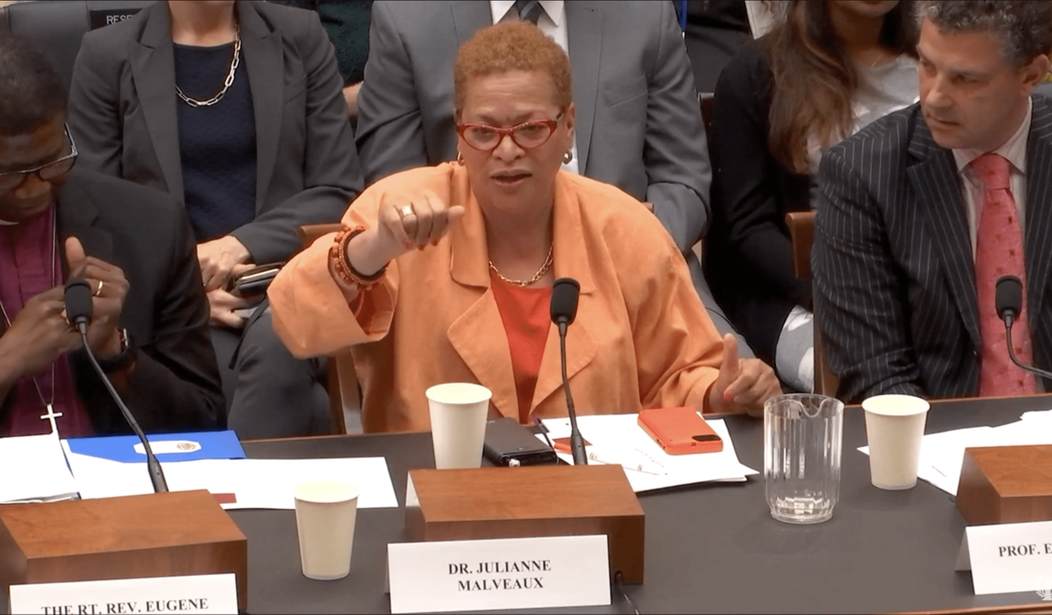WASHINGTON — While testifying at a congressional subcommittee hearing on reparations, Dr. Julianne Malveaux, an economist and political commentator, said Democrats “were the devil once upon a time” but “Republicans took that over.”
During a House Judiciary Subcommittee on the Constitution, Civil Rights, and Civil Liberties hearing on Wednesday, Rep. Louie Gohmert (R-Texas) mentioned that members of the Democratic Party such as former Vice President Al Gore’s father, former Sen. Albert Gore Sr. (D-Tenn.) and former Sen. Robert Byrd (D-W.V.) had voted against the Civil Rights Act of 1964.
Under questioning from Rep. Veronica Escobar (D-Texas) at the “H.R. 40 and the Path to Restorative Justice” hearing, Malveaux responded to Gohmert’s comments about the history of the Democratic Party.
“People want to talk ugly about Democrats; people change their ideologies so the Democrats were the devil once upon a time. There were these groups called the Red Shirts, which were the Klan, they were Democrats. However, the Republicans took that over, they became the devil,” Malveaux said. “I’m just saying. Forgive me, brother Chairman, I know you said I’m not supposed to say that. Forgive me. But in any case, people do change ideologies.”
Malveaux brought up Wilmington, N.C., as an example of the history of the Democratic Party.
“Democrats and Republicans have been racist but in Wilmington North Carolina, Republicans and black people came together to form a fusion government, and white folks were so frightened that they took all the prominent black men in that town, arrested them, the next morning gave them tickets to leave town. They had to leave their property, their livelihood, their families, everything,” she said. “This is why we need reparations. Democrats, yes, Democrats were so threatened by the notion of this fusion government that they basically burned people out. They’ve documented 60 deaths.”
Malveaux continued, “It was really about economic envy, so absent this economic envy and fear, black folks, we didn’t get the 40 acres and a mule, but we were still trying to do it, and then folks came in and said, ‘Wait a minute, if we let them do their thing, where is our cheap labor going to come from?’”









Join the conversation as a VIP Member